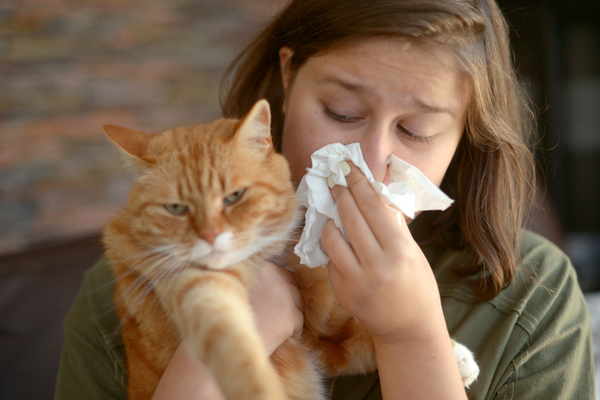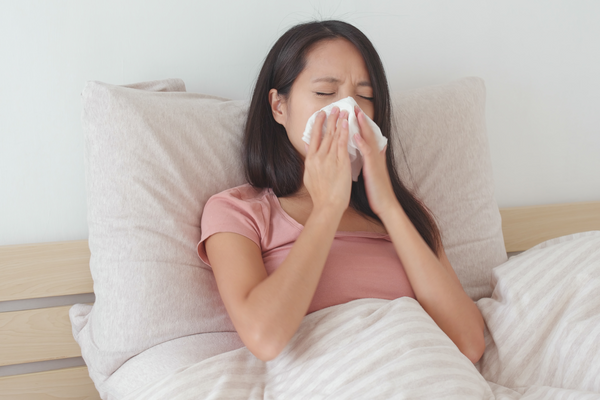Best Practices to Train Your Puppy to Minimize Accidents in the House

Puppies are the best and also a ton of work. One of the most challenging parts of having a new puppy is house training and minimizing accidents in your home. If they’re not immediately tended to, pet accidents create foul odors that can stink up a room. To spare your floors and furniture as much as possible, consider the following best practices to minimize accidents:
Take Your Puppy Outside Regularly
Puppies don’t have fully developed bladders yet, and they need to do their business more often than an adult dog. Make sure you take your puppy outside at least every two hours (or more if they start having accidents around the house). Another good rule of thumb to abide by is that your puppy can hold its bladder for one hour every month of age. So if your puppy is four months old, it should reasonably be able to hold its bladder for four hours. Also, be sure to take him or her outside immediately when they wake up, right after a good play session, and directly after eating or drinking. This will reinforce that the urges they feel after these activities need to be taken care of outside. The more they feel the grass, the more they’ll want to do their business outside.
Use Positive Reinforcement
Anytime your puppy goes to the door and “asks” to go outside, offer him or her high praise. Anytime they go to the bathroom outside, reward them with lots of love and a treat. Most dogs want to please their owners, which will help them understand what you want. If they have an accident, try your best not to punish them harshly, but instead, calmly take them outside and praise the behavior you want to see. A puppy’s fear period can often have lasting effects in later years, and any adverse or angry reaction may leave deep roots. Positive reinforcement training can help ensure repeated good behavior, rather than a fear response, leading to unwanted behavior.
Find Temporary Solutions and Tools
While they are not a permanent solution, puppy training pads can help your dog understand that there are designated places where he or she should use the bathroom. Even though you should be taking your dog out every few hours throughout the night, you can also line their crate with pads to avoid a messy cleanup in the middle of the night.
Try Crate Training
No puppy wants to be away from their new owner, so crate training may seem like an insensitive method, but it’s truly a lifesaver, and in the end, most dogs grow to love their crates as a place that is all their own. Crates provide a sense of security to your puppy — he or she is a den animal, after all. Crates are also great for house training because your puppy will not want to soil the place he or she sleeps. However, it’s important not to have a crate that’s too big. Otherwise, your puppy might think it’s fine to use one corner to relieve himself or herself and then curl up to sleep in another corner. (You can find many crates that come with partitions that you can move as the dog grows.) When your puppy whines or scratches to get out of their crate, don’t wait! Get up and take them outside right away. If he or she learns that they can keep their little den clean, they’ll learn to keep your house clean as well.
Be Patient and Consistent
Accidents happen, especially when your puppy is first learning where to do his or her business. If your puppy has an accident, be patient and calmly place them outside and clean up the mess. Vital Oxide is a helpful tool in your housetraining tool belt. Whether it’s urine, vomit, or droppings, Vital Oxide has the cleaning power to eradicate foul-smelling odors and stubborn stains.
Use these methods for cleaning up puppy accidents:
To clean urine from carpets or upholstery, use paper towels to initially blot up as much urine as possible, being careful not to rub it in. Then, rinse the area with a bit of hot water to dilute the remaining urine. Repeat the first step to blot up as much of the urine and water as possible. Finally, spray Vital Oxide on the area to eliminate odors and stains. Be sure to use enough of the formula to penetrate the carpet or upholstery fibers and all places the urine may have penetrated and simply let air dry. A fan can be used to dry the carpet or upholstery faster if needed.
To clean excrement, pick up the droppings if they are solid. If the mess is wet, like diarrhea or vomit, try to get as much of it as you can, working as fast as possible to avoid letting the stain set. A suitable method is to put on rubber gloves and use a dustpan to scrape up most of the mess and then paper towels to remove the rest of it. Be careful not to force the mess into the carpet or upholstery as you’re cleaning! After you’ve picked up the mess, spray Vital Oxide and let it work its magic. Vital Oxide is proven to remove the most pungent, most deep-set pet odors and stains.
If you’re finding that your puppy is having frequent accidents, it’s a good idea to try increasing the number of bathroom breaks, or perhaps it’s time to invest in some training pads. Just remember, be patient as they learn what is and is not okay. Whatever you do, patience and consistency will be the key to success.
Exclusively written for EcologyWorks.com By David Cruz






